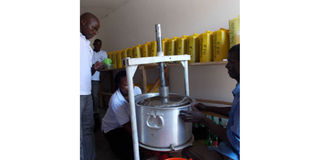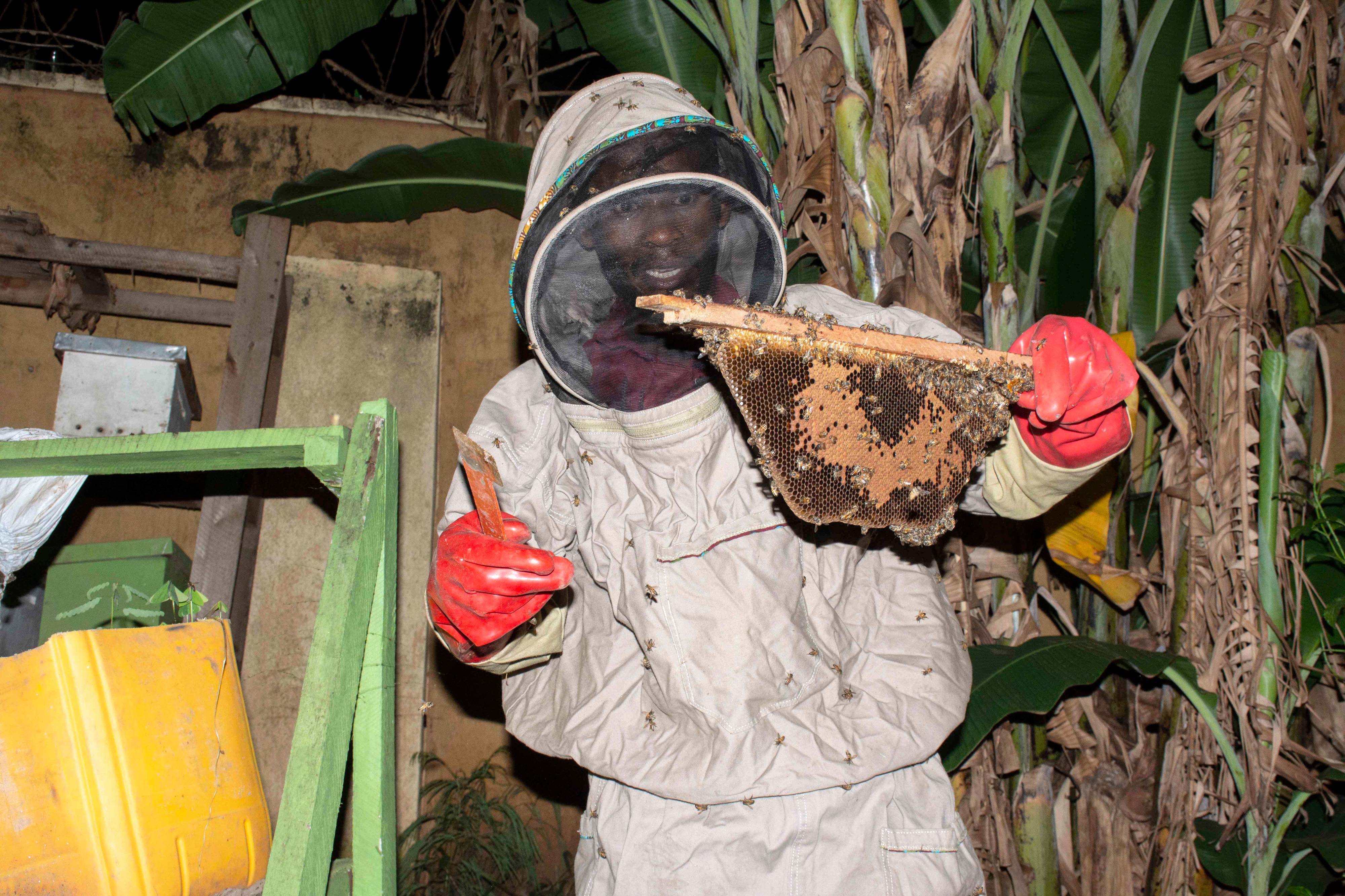Why value-addition machines are idle

A farmer group with their machine that makes wine out of pineapples. PHOTO | FILE
What you need to know:
- Leaders say the facilities could not function after installation since they are not connected to the electricity grid.
Agro-processing facilities worth billions of shillings are currently lying redundant in Omoro District, 10 years after they were installed.
This publication has learnt that the value-addition facilities that include milling, hurling machines, and storage units, among others, were delivered under the Community Agricultural Infrastructure Improvement Programme Project 2 (CAIIP-II).
The Daily Monitor established that the equipment was installed in Omoro District in 2014.
Mr Douglas Peter Okello, the Omoro District chairman, said in an interview at the weekend that a few of the facilities were briefly operational but later collapsed because of mismanagement.
The facilities that are not operational include Ongako United Block Farmers (Modern Rice Mill) at Kal, Pur Ber Rice Mill in Acet Central, Parak Machine Mill in Parak, Bobi Satellite Maize Grinding Mill in Paidongo, MK Modern Organic, CAIIP Maize Mill in Opit.
Others are Mini Ginnery Wiagweng (Oil Seed extraction), Mini Ginnery Awor (Oil Seed extraction), Dream Centre (Livestock feed), Awere Fronasa Maize Mill (Awere), CAIIP Maize Mill (Ongako) and Kulu Otit Maize mill (Kulu Otit) .
Only Amuru Agro Processor Rice Mill (Pida Koro), CAAIP Rice Mill (Acet), CANNA Grain (Maize Mill (Barogal) and CAIIP Maize Mill Opit are operational.
Mr Okello said the facilities could not function after installation since they are not connected to the electricity grid.
“Umeme should, therefore, avail us with the cost required for the establishment. These do not require the Local Government to write to them, they need to comply because they can help us do the calculations and come up with the report we need about what is required,” Mr Okello said.
“Some of those agro-processing facilities had a lot of issues of mismanagement. They are dying a natural death because they were handed over to the private operators and after unpaid power bills accumulated, they ran away and abandoned the facilities with accumulated bills,” Mr Okello added.
CAIIP-II programme ran under a $72.9m (about Shs276b) project, with money borrowed from the African Development Bank. lt was launched by the government in 2009 and covered 15 districts in northern and eastern Uganda in 65 sub-counties.
The initiative targeted poverty reduction and economic growth in Uganda through enhanced farmers’ access to markets, attractive and competitive prices, increased incomes through improvements in rural infrastructures and their management by well-mobilised communities, among others.
It hinged on rural infrastructure improvement, community mobilisation and project management.
Mr Stephen Tumwine, the senior development officer at the Ministry of Local Government, blamed the failure of the project on the Ministry of Energy.
“The Ministry of Local Government has written to the Ministry of Energy multiple times requesting them to connect these value addition facilities to electricity, but would not yield fruits. The Ministry of Energy has a lot of bureaucracy that we need to cut and this problem cuts across the whole country,” Mr Tumwine said.
“The value addition facilities are not connected to the power grid and that has been the biggest challenge. As we talk now, we have all aggregate facilities (supplied under Naads) across the Rwenzori Sub-region not connected to power, it is three years down the road,” Mr Tumwine said.
Efforts to get a comment from the Ministry of Energy were futile by press time. An official from Umeme, the national electricity distributor, who spoke to this newspaper on condition of anonymity, denied claims that electricity connections had been denied to the district.
He said the district has since not tabled any request to Umeme to conduct an assessment and connect the facilities.
“As Umeme, we are committed to supplying all these premises but what we need is communication from the district. As of now, we have not received any request from the district asking us to come and carry on with the valuation but as soon as that comes, we shall do the scoping, cost and present it to the district for action,” the source said.
Earlier on January 9, the Chief Coordinator for Operation Wealth Creation, Gen Salim Saleh, ordered the Ministry of Local Government to urgently operationalise hundreds of multi-million agro-processing facilities that were installed in several districts across the country but have never functioned.




